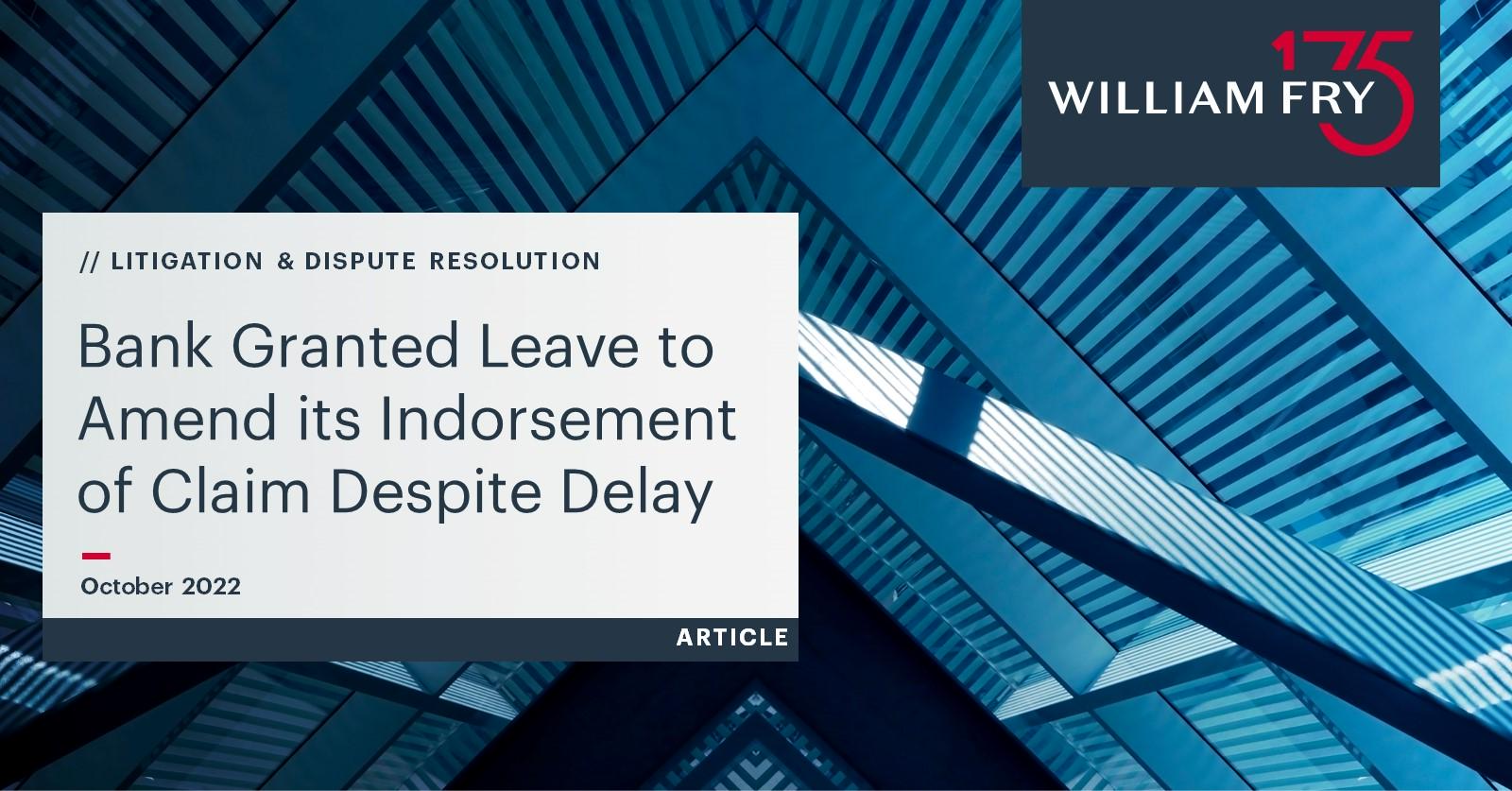Bank Granted Leave to Amend its Indorsement of Claim Despite Delay
The plaintiff, Bank of Ireland Mortgage Bank (BOI), entered into a loan facility agreement with Mr O’Malley in October 2008 for €225k, which was secured by a legal charge over lands in Mayo. BOI alleged that the defendant stopped making loan repayments in November 2011. BOI issued summary summons proceedings in the High Court in January 2014, and they secured summary judgment against the defendant in July 2014.
The defendant appealed the decision, which was ultimately heard by the Supreme Court (SC). The SC judgment in November 2019 sets out the proper approach to the necessary level of particularisation in a summary summons. The SC set aside the orders against Mr O’Malley and remitted the matter back to the High Court, to allow BOI to apply to amend its special indorsement of claim, in light of the SC judgment.
Supreme Court – Issues with Indorsement of Claim
Clarke CJ held that the special indorsement of claim contained insufficient details of how the sum claimed was calculated, and, as such, did not meet the requirements of the Rules of the Superior Courts (RSC). Order 4, Rule 4 of the RSC requires all necessary particulars to be set out.
Clarke CJ held that the information was insufficient to allow a defendant served with a summary summons to know whether they should concede or dispute the claim. It was also held that there was insufficient detail in the evidence submitted to allow the court to assess whether the claim had been established on a prima facie basis.
High Court – Delay
BOI issued its motion to amend the special indorsement of claim in October 2021, a delay of almost two years from the SC decision. The High Court (Court) heard the application in July 2022.
BOI sought to explain the delay partly because of the necessity for “a fundamental reconsideration of how proceedings of this nature are to be pleaded and how the evidence granting an application for summary judgment is to be presented” in the aftermath of the SC decision.
In addition, the Court noted that there was an intimation by BOI that it acted in part “out of good-natured solitude to its customers” considering the Covid-19 pandemic but the Court suspected that the delay was also due to the payment holidays under the European Banking Authority (EBA) Guidelines on legislative and non-legislative moratoria on loan repayments applied in the light of the pandemic.
A Question of Prejudice
Order 28 Rule 1 of the RSC provides that amendments to pleadings “shall be made as may be necessary for the purpose of determining the real questions in controversy between the parties.”
The Court referred to its general reluctance to abridge the constitutional right of a party to litigate, and to make the case that they wish to make. The Court held that a party will, therefore, generally be entitled to amend pleadings unless it would cause irreparable prejudice to the opposing party.
Mr O’Malley argued that BOI was obliged to act on foot of the SC judgment within a reasonable time. He contended that the SC could not have intended that BOI would seek to amend the pleadings two years after its judgment.
Mr O’Malley argued that BOI’s actions were contrary to the fundamental principles of fairness and the interests of justice and urged the Court to refuse the relief sought.
The Court was critical of the delay, reminding BOI that banks must proceed promptly and be mindful of the fact that there are “real and often stressed out human beings at the end of debt recovery proceedings”. However, in the absence of any evidence of any prejudice being caused to Mr O’Malley by allowing the amendment sought by BOI, the Court granted the application to amend.
Conclusion
Summary summons cases proceed based on affidavit evidence, and the plaintiff can generally prove their claim based on documentary evidence rather than oral evidence. Amending such pleadings, therefore, ensures justice can be achieved between the parties. The approach of the Court in BOI v O’Malley in allowing the amendment of the special indorsement of claim, notwithstanding the significant delay, underlines its upholding of the interests of justice in ensuring the real questions in controversy are before the Court.
To discuss any aspect of this article in more detail please contact Lisa Carty, Hilary Rogers, or your usual William Fry contact.
Contributed by Joanne Ryan & Kate Abell


